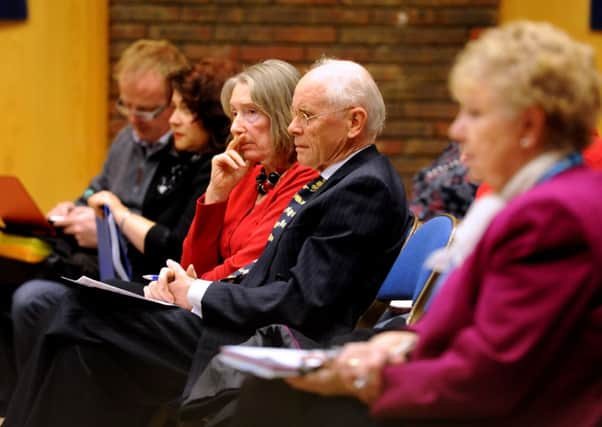“Post code lottery” of care for mental health patients in West Sussex


Their feedback, given in workshops to help commissioners develop a five year framework for mental health services, has renewed calls by health campaigner Anne Jones for more resources in Mid Sussex.
Tom Insley, Senior Mental Health Commissioner said: “These workshops have provided a temperature check and the feedback was remarkably consistent across the board.”
Advertisement
Hide AdAdvertisement
Hide AdPatients, GPs and other service providers have said the quality of services in West Sussex is “very inconsistent”, with provision subject to a “post-code lottery” and too many patients turning up in hospital emergency departments because mental health services tended to operate on a nine to five basis.
The findings were revealed at a meeting of the governing body of Horsham and Mid Sussex Clinical Commissioning Group (CCG) in Burgess Hill on March 4.
Speaking after the meeting, Burgess Hill councillor Anne Jones said: “St Francis Hospital closed [in Haywards Heath] and then we lost Millhaven in Burgess Hill, which meant there wasn’t a place for mental health patients in the community to go.
“What do we have in their place? Nothing.
“One in four people in this country has mental health problems and they could end up in A&E or in custody if the right support isn’t there. We need a one-stop-shop here.
Advertisement
Hide AdAdvertisement
Hide Ad“The in-patient hospital is at Langley Green and difficult to access by public transport. The carers’ support service for this area is based in Crawley and it’s the same for domestic violence.”
Dr Simon Dean, the clinical lead for Horsham on the governing body, said: “In Horsham, addiction services are very weak. We don’t have a permanent presence and I would like mental health services to embrace addiction services more.”
Becca Randell, Child and Adolescent Mental Health Services Commissioner, said children’s services were “in a bit of a pickle” with parents and GPs expressing “frustration” over how to access the right support.
She said: “The big issue in Burgess Hill and Chichester is the high number of adolescents with eating disorders. The demand in Chalkhill [adolescent mental health unit] is high and our colleagues [GPs] are feeling the need for extra training around this.”
Advertisement
Hide AdAdvertisement
Hide AdThe governing body also heard from Berry Bonner-Le Fur who has been working on a five-year commissioning framework for adults with learning disabilities in West Sussex.
She described the fabric of the Burnside Centre, a day centre for adults with learning disabilities in Burgess Hill, as “In an appalling state - actually shocking,” adding: “There are gaps, particularly for residential, supported living and day-care in the north of West Sussex.”
Dr Minesh Patel, who chairs the governing body, praised the work of everyone involved in developing frameworks to address weaknesses in provision at a time when financial constraints are tight and staff retention in mental health services is an issue.
Tom Insley, Senior Mental Health Commissioner, said: “We are working towards developing a more integrated IT system and joined up services to provide seamless care for patients.”